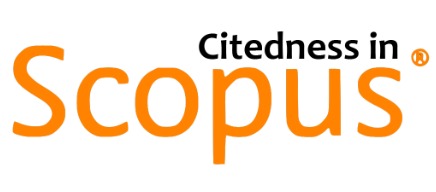Pembelajaran Pendidikan Agama Islam Berbasis Kearifan Dayak di SMPN 1 Palangka Raya
Keywords:
Dayak, Learning, Islamic Religious EducationAbstract
This study aims to analyze Islamic Religious Education (PAI) learning based on Dayak wisdom at SMPN 1 Palangka Raya . Local wisdom values, such as mutual cooperation, deliberation, and harmony with nature, are implemented in PAI learning to strengthen students' understanding of Islamic teachings while fostering tolerance in a multicultural society. This research uses a qualitative approach. Data were collected through participant observation of Dayak culture-based learning, in-depth interviews with teachers as research subjects, as well as with the principal and 17 students as research informants, and documentation analysis. The results show that integrating Dayak local wisdom into PAI learning at SMPN 1 Palangka Raya not only enhances students' understanding of religious values but also shapes better tolerance attitudes. Students become more open-minded and appreciative of cultural and religious differences among their classmates. This Dayak local wisdom-based learning has also proven effective in fostering harmony and peace within the school environment.
References
Ajahari, A., Puspita, P., Teddy, T., Husna, N., & Iriantara, Y. (2023). Implementasi Kebijakan Penguatan Moderasi Beragama (PMB) dalam Kurikulum Pada Perguruan Tinggi Keagamaan: (Studi Kasus Pada IAIN, IAKN dan IAHN Tampung Penyang Palangka Raya ). Transformatif (Islamic Studies), 7(1).
Darmawati, E. (2018). Mengembangka kecerdasan emosional melalui musola. http://digilib.iain-Palangka Raya .ac.id/id/eprint/1774
Hamdanah, H., & Muslimah, M. (2023). Exploration Of The Value Of Islam-Based Multicultural Education In Local Wisdom Traditions National Culture Adab. Jurnal At-Tarbiyat: Jurnal Pendidikan Islam, 6(2).
Hamdanah, Rusmaniah, Rajiani, I., & Muslimah. (2024). Continuance intention of digital education in traditional Indonesian higher education: Policy implication forward. Journal of Infrastructure, Policy and Development, 8(5). https://doi.org/10.24294/jipd.v8i5.3596
Hikmah, N., Muslimah, M., Kholfiah, Y., Sanusi, A., Satria, S., & Handayani, R. K. (2021). Implementasi nilai moderasi beragama dalam pelatihan pembuatan ptk guru di SMKN 8 Palangka Raya . Prosiding Konferensi Nasional Pengabdian Masyarakat, 2, 399–409.
Matitale, V. T., Suryanto, Jeniva, I., Muslimah, Alberto, J. L., Arianti, S., Nurjanah, S., Sinaga, E. R., Tarigan, S. C., Venesa, Carolina, Esellina, Aprie, & Haliza, I. (2024). PAGELARAN SENI BUDAYA ANTAR ETNIS DALAM MEWUJUDKAN MODERASI BERAGAMA. RAMBIDEUN: Jurnal Pengabdian Kepada Masyarakat.
Muslim, N., Azis, A., & Zainab, S. (2018). Tantangan Dakwah Pada Masyarakat Multikultural Di Kalimantan Tengah. Wardah, 19(2), 122–134. https://download.garuda.kemdikbud.go.id/article.php?article=856557&val=7965&title=TANTANGAN DAKWAH PADA MASYARAKAT MULTIKULTURAL DI KALIMANTAN TENGAH
Muslimah, Hamdanah, & Syar’i, A. (2021). The Becoming a Tolerant Muslim: Study of Dayak Converts. Jurnal Penelitian, 18(2), 197–208.
Muslimah, M., Eka, N., Hasiholan Hutapea, R., Mustapa, M., Irawan, F., Azizah, N., Dia, E., Widia, K., Joni, J., Anugrah, F., Wela Victoria Yanto, M., Nur Safitri, W., & Safana, I. (2022). Prosiding Konferensi Nasional Pengabdian Masyarakat MEMPERKUAT HARMONI NILAI KEBANGSAAN DAN MODERASI BERAGAMA DALAM TRADISI PAWAI OBOR DI DESA PANGI. Prosiding Konferensi Nasional Pengabdian Masyarakat (KOPEMAS), 3, 267–274.
Muslimah, Musthofa, I., Yahya, M. D., Musthan, Z., & Wahyuni, A. (2022). Desain Pembelajaran Akhlak Berbasis Pendekatan Contextual Teaching and Learning ( Ctl ). Edukasi Islami: Jurnal Pendidikan Islam, 11(1), 1149–1162.
Muslimah, Rahman, A., Hamdanah, Mazrur, & Tang, S. M. (2021). The Ways to Teach Children in Decision Making based on Parents Educational Level. International Journal of Early Childhood Special Education, 13(2), 198–207. https://doi.org/10.9756/INT-JECSE/V13I2.211055
Normuslim, N. (2018). Kerukunan Antar Umat BeragamaKeluarga Suku Dayak Ngaju di Palangka Raya . Wawasan: Jurnal Ilmiah Agama Dan Sosial Budaya, 3(1), 66–89. https://doi.org/10.15575/jw.v3i1.1268
Puspita, & Ajahari. (2022). Social Media Strategy to Campaign for Religious moderation in Post-pandemic. The 4th International Conference on University-Community Engagement (ICON-UCE) IAIN Syekh Nurjati Cirebon, 522–527. https://icon-uce.com/index.php/icon-uce/article/view/72
Rahmatia, A. (2019a). a Study of Max Weber Thought on Its Relation To Work Purposes and Ethics in the Islamic Economics. Transformatif, 3(1), 19–41. https://doi.org/10.23971/tf.v3i1.1228
Rahmatia, A. (2019b). Financial Literacy Among Malay Society in the Riverside Area of Central Kalimantan. Al-Banjari : Jurnal Ilmiah Ilmu-Ilmu Keislaman, 18(2), 227. https://doi.org/10.18592/al-banjari.v18i2.2530
Rianti, H., Syaipullah, S., Muslimah, M., & Hamdanah, H. (2021). Islamic Education Value in the Process of Manejek Huma (Membangun Rumah) for Dayak Kahayan / Ngaju (Biaju) At Bahaur Hulu Village. Journal of Contemporary Islamic Education, 1(1), 67–75. https://doi.org/10.25217/cie.v1i1.1416
Sidiq, S. M., & Muslimah. (2024). PROBLEMATIKA YANG DIHADAPI GURU DI SEKOLAH DALAM KONTEKS SUPERVISI PENDIDIKAN. Berajah Journal, 4(2).
Supaini, S. (2019). Guru Berkarakter: Antara Harapan dan Kenyataan. CV. Narasi Nara.
Published
How to Cite
Issue
Section
Copyright (c) 2025 Ahmad Muhajir, Muslimah Muslimah

This work is licensed under a Creative Commons Attribution-ShareAlike 4.0 International License.
Copyright and Licensing Policy
Paedagogie: Jurnal Pendidikan dan Studi Islam allows authors to retain the copyright of their work and to retain publishing rights. By submitting and publishing with this journal, authors agree to the following terms:
-
Copyright remains with the author(s), and they grant the journal the right of first publication. The work is published under a Creative Commons Attribution-ShareAlike 4.0 International License (CC BY-SA 4.0), which permits use, distribution, and reproduction in any medium, provided the original work is properly cited and any derivative works are distributed under the same license.
-
Authors are allowed to enter into additional non-exclusive distribution agreements (e.g., posting to institutional repositories, publishing in books), with acknowledgment of the work's initial publication in this journal.
-
Authors are encouraged to disseminate their work online (e.g., in repositories or on personal websites) before and during the submission process to increase visibility and impact.
Paedagogie: Jurnal Pendidikan dan Studi Islam supports open access and affirms that libre access with a CC BY-SA license or its equivalent is the optimal approach for scholarly communication. We prioritize free and open dissemination while encouraging the reuse and adaptation of published content under fair and equitable terms.
You are free to:
- Share — copy and redistribute the material in any medium or format
- Adapt — remix, transform, and build upon the material for any purpose, even commercially.
- The licensor cannot revoke these freedoms as long as you follow the license terms.















